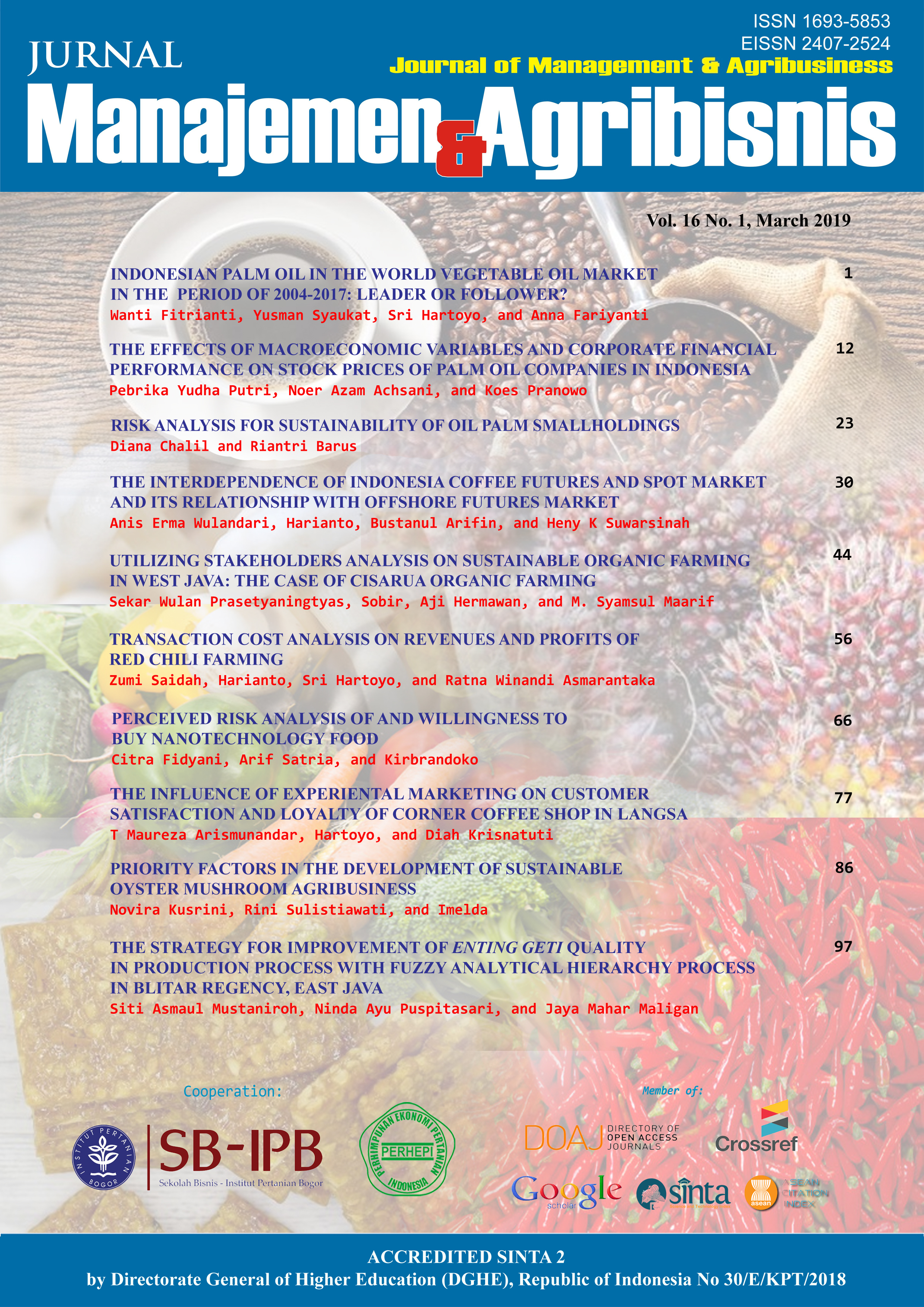Perceived Risk Analysis of and Willingness to Buy Food Nanotechnology
Abstract
A number of studies stated that nanotechnology is predicted to encourage the third wave of research diffusion, development, and advancement in agricultural and food sectors, as an integrated part of the nanotechnology revolution in various fields. The aim of this study was to assess the effect of nanotechnology knowledge, trust, and communication media on perceived risk and willingness to buy food nanotechnology. The data came from an online questionnaire with 302 people collected by an online survey, and the research used a purposive sampling method, and structural equation modeling was used for data analysis. Based on the result of the research on three variables (nanotechnology knowledge, trust, and communication media), it is known that communication media and trust had significant effects on risk perception; however, nanotechnology knowledge had no significant effect. Furthermore, perceived risk had a significant effect on willingness to buy food nanotechnology. The sequence from the largest to the smallest of willingness to buy is functional food with a health benefit, food packaging, and food additive to improved product quality. Functional food has been chosen because there is an additional health benefit they will get. Meanwhile, food packaging was considered less risky as it did not directly contact with the product and was not digested by the body. Food additives to improve product quality was the lowest since the respondents felt they did not get any benefits from the application.
Authors
Authors who publish with this journal agree to the following terms:
- Authors retain copyright and grant the journal right of first publication with the work simultaneously licensed under a Creative Commons Attribution License that allows others to share the work with an acknowledgement of the work's authorship and initial publication in this journal.
- Authors are able to enter into separate, additional contractual arrangements for the non-exclusive distribution of the journal's published version of the work (e.g., post it to an institutional repository or publish it in a book), with an acknowledgement of its initial publication in this journal.
- Authors are permitted and encouraged to post their work online (e.g., in institutional repositories or on their website) prior to and during the submission process, as it can lead to productive exchanges, as well as earlier and greater citation of published work (See The Effect of Open Access).

